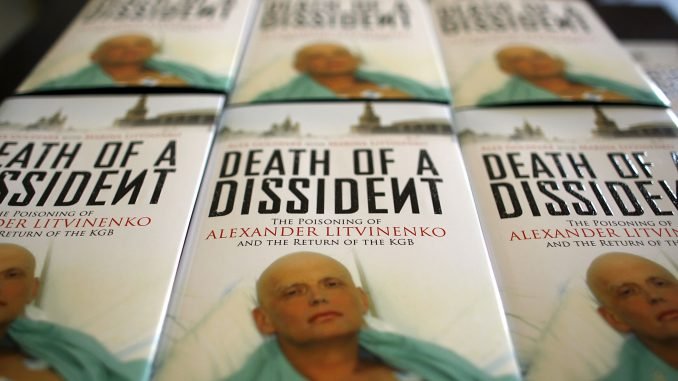
Labels are important. For too long, the Western world preferred to ignore Russia’s crimes at home and abroad and look the other way. But no more. Last week, when the European Parliament labelled the Russian Federation as a state which uses terrorist means and called for the world to recognise this label, Russia was finally named for what it has become.
This unequivocal labelling by European lawmakers, backed by an overwhelming majority of the House (494 in favour, 58 against and 44 abstentions), demonstrates the will to impose serious legal consequences on the regime in the Kremlin and reinforces Russia’s international isolation, including its possible suspension from the UN Security Council. It is also a call to bring the Kremlin leaders, including Vladimir Putin, and proxies to the international tribunal and force them to take full responsibility for their actions. Furthermore, Alexander Lukashenko should be treated as an accomplice in the war of aggression against Ukraine for his role in enabling attacks from the territory of Belarus and openly supporting the Russian aggressors.
Statistics often accompany the labelling of Russia as a state sponsor of terrorism: the Ukrainian Prosecutor General’s office recently confirmed the death of over 8,300 civilians due to the war, among them 440 children. No one knows how many more have not yet been identified in the areas under Russian occupation. Around 1.6 million Ukrainians, including over 12,300 children, were forcibly deported to remote parts of Russia or to Belarus, according only to the documented data. This is in addition to tens of thousands of documented cases of targeted killings, abductions, torture, rape and sexual violence – the Ukrainian law enforcement agencies have launched investigations into over 49 thousand cases of war crimes. Behind the numbers are people. What shall we say to the Ukrainian mother who just buried her 2-day-old child, killed by Russian shelling of a maternity ward?
And beyond this war, what shall we say to Marina Litvinenko about the murder of her husband? What shall we say to Anna Politkovskaya’s children? For decades, Putin’s regime has been playing a cold-blooded game with Western democracies, offering economic benefits, for example, Russian gas, in exchange for the West turning a blind eye to eliminating political opponents. Let’s call it what it is: economic appeasement. And if we don’t call the Russian Federation out for what it is, what can we say to suffering individuals that have any meaning at all?
This label is a political stance with political consequences, but it will have legal implications too. There can be no business as usual with Russia. Can a terrorist state be a UN Security Council member? Naming Russia as a state using terrorism must lead to an indictment before an international tribunal. Just as the International Military Tribunal held in Nuremberg after World War Two tried the representatives of Nazi Germany, so should today’s international tribunal try the representatives of the current Russian regime for the crime of war aggression, the ‘mother of all crimes’.
The label should also sharpen up our own response. The EU Institutions must adopt a new EU legal instrument with the power to increase sanctions against both the current Russian regime and the factions within its government as well as on political, legislative, military and executive bodies, including the so-called Wagner Group, ‘Kadyrovites‘, and the de facto authorities of Donetsk and Luhansk People’s Republics. International immunity of Russian state assets should be removed, and frozen Russian state assets should be used to compensate the victims of Russian terrorism in Ukraine.
Delivery of justice is needed not only for Ukrainians to ensure that the international rules and norms-based order continue to exist. Moreover, it is needed by the Russian people. They must finally recognise the sheer destructiveness of imperialistic and genocidal ideologies, and those who committed crimes and condoned them must face justice. Only from then on can a new European-type Russia be possible.
No country, surely, wants to be labelled as a state sponsor of terrorism. Unfortunately, this is a badge of shame for millions of ordinary Russians. We want to remind the Russian people that it’s within their power to change this label. Until then, the label remains, plus all the consequences such a label entails.


Be the first to comment